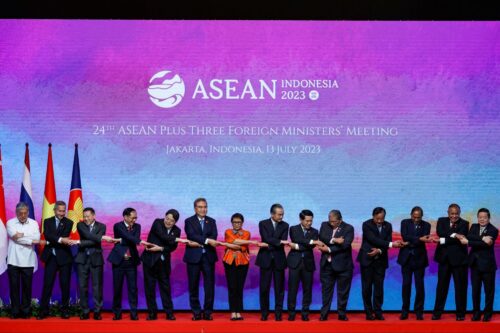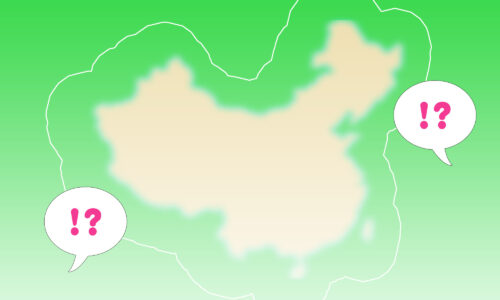Trade war, day 105: Trump looks for deals with Vietnam and Philippines

Over a year and a half ago, Donald Trump pulled the U.S. out of the Trans-Pacific Partnership, a 12-nation multilateral deal with many countries in China’s neighborhood that was specifically designed, in part, to provide an alternative market to China. The Trump administration promised an energetic bilateral approach to dealmaking instead, but for months and months, no news about bilateral trade deals being made across the Pacific emerged.
Now, quite belatedly, the bilateral outreach to at least one former TPP country, and potentially other Pacific countries, may be finally beginning. The New York Times says (porous paywall) that after “The White House gave formal notification to Congress this week that it would begin trade talks with Japan, the European Union and the United Kingdom,” it also “has its sights on free trade agreements with the Philippines and Vietnam, as part of its effort to fence in China with agreements in its backyard.”
The Philippines was “excluded from the Obama-era Trans-Pacific Partnership because its high tariffs and other trade barriers,” but Vietnam was party to the trade talks.
In other trade news, “China, the European Union, Russia and Norway joined ‘several other’ countries in asking the World Trade Organization to investigate the Trump administration’s decision to impose tariffs on metal imports,” Bloomberg reports (porous paywall). The reporter at Bloomberg who filed this story, Bryce Baschuk, explains its significance in a Twitter thread — a few excerpts:
This will be a watershed moment for the WTO dispute system
If the @WTO dispute settlement body determines that @realDonaldTrump’s national security tariffs aren’t permitted under the GATT’s Article 21 national security exemption it could force Trump to roll back a key tool in his “America First” trade arsenal.
Conversely, if the @wto agrees with the U.S. argument that the measures are exempt from WTO rules, it could encourage @realDonaldTrump to impose national security tariffs on cars & spur a proliferation of other trade restrictions authorized under the guise of national security.
More trade war news:
- Toll on Chinese economy
Trade War to Hammer China’s Machinery, Electronics Exports, Report Says / Caixin (paywall)
“Now that Washington has imposed additional tariffs on a total of $250 billion in Chinese products — accounting for roughly half of China’s annual exports to the U.S. — machinery and electronics companies are beginning to feel the pressure. The additional U.S. tariffs cover two-thirds of China’s exports of mechanical and electronic goods to the United States, according to a report released by the China Chamber of Commerce for the Import and Export of Machinery and Electronic Products. Based on last year’s trade volumes, this means that 10% of China’s total exports of machinery and electronics will be hit by the additional U.S. taxes, the report found.” - Business deals go on as usual
Exxon Mobil bets big on China LNG, sidesteps trade war / Reuters
Tesla buys land in Shanghai for first overseas gigafactory / Reuters - Commentary
Why China shouldn’t wait out trade feud with US / Bloomberg (porous paywall)
Beijing must win the hearts of US businesspeople amid trade war, China policy adviser says / SCMP - Currency concerns
China stocks, Yuan test government’s ability to maintain market calm / Bloomberg (porous paywall)
Chinese exporters: weaker yuan won’t make up for trade war impact / SCMP
China’s weak currency is helping it in the trade war — but Beijing doesn’t want it to fall further / Washington Post
Yesterday we noted a breaking news report from CNBC that the U.S. Treasury Department decided not to label China a “currency manipulator” in its regular report on foreign exchange policies. The Wall Street Journal today explains (paywall) why that decision was made:
“While President Trump has threatened to label China a currency manipulator, the laws governing the report require countries to meet three thresholds to receive the designation: persistently intervening in currency markets; running a significant trade surplus with the U.S.; and running a large current-account surplus overall. No country currently meets all three criteria. China, for example, runs a modest overall trade surplus, even though it runs a large one with the U.S.”
Previously in The China Project’s trade war coverage:






